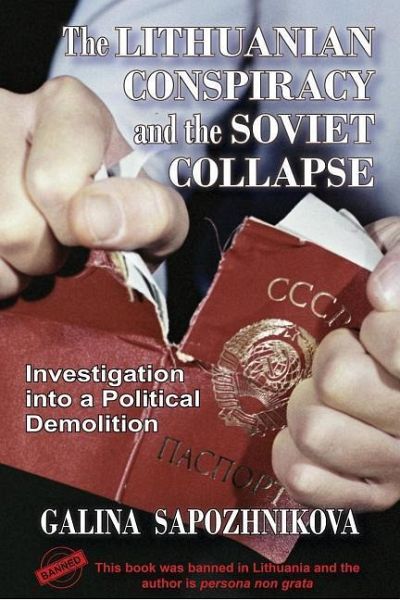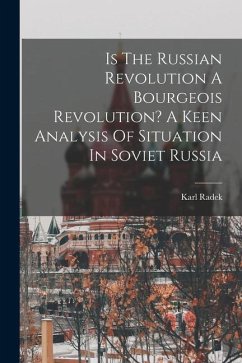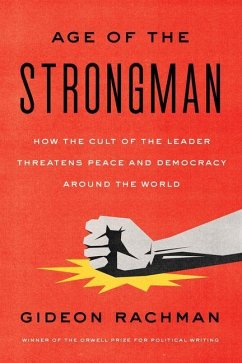
The Lithuanian Conspiracy and the Soviet Collapse
Investigation Into a Political Demolition
Versandkostenfrei!
Versandfertig in über 4 Wochen
22,99 €
inkl. MwSt.

PAYBACK Punkte
11 °P sammeln!
"Through interviews with leading participants on both sides, prominent Russian journalist Galina Sapozhnikova captures the political and human dimensions of betrayal and disillusionment that led to the collapse of the 20th century's greatest experiment in social engineering, and what happened to the men and women who struggled to destroy or save it. Termed "color" revolutions by the worldwide media, these various movements developed in several societies in the former Soviet Union and the Baltic states during the early 2000s. In reality, they were US intelligence operations which covertly insti...
"Through interviews with leading participants on both sides, prominent Russian journalist Galina Sapozhnikova captures the political and human dimensions of betrayal and disillusionment that led to the collapse of the 20th century's greatest experiment in social engineering, and what happened to the men and women who struggled to destroy or save it. Termed "color" revolutions by the worldwide media, these various movements developed in several societies in the former Soviet Union and the Baltic states during the early 2000s. In reality, they were US intelligence operations which covertly instigated, supported and infiltrated protest movements with a view to triggering "regime change" under the banner of a pro-democracy uprising. The objective was to manipulate elections, initiate violence, foment social unrest and use the resulting protest movement to topple an existing government in order to install a compliant pro-US government. What were the many tactics deployed in Lithuania, only now recognized as one of the first, to galvanize the popular uprising? Was Gorbachev's role duplicitous and anti-USSR? What was the role of Eugene Sharp in this grand show of historic transformation? Is nationalism a force to be welcomed or feared? How did the political shape-shifters act - the former Komsomol and Communist Party executives, who took high posts in the new "democratic" governments? What happened to the pro-democracy forces and to those they defeated in the aftermath? How has all this worked out for Lithuania? This book not only exposes the process, but sheds light on how these events play out, post regime-change. It is key to grasping the template that today underlies similar events in Syria, Ukraine, Venezuela, Iran and likely elsewhere, going forward"--












